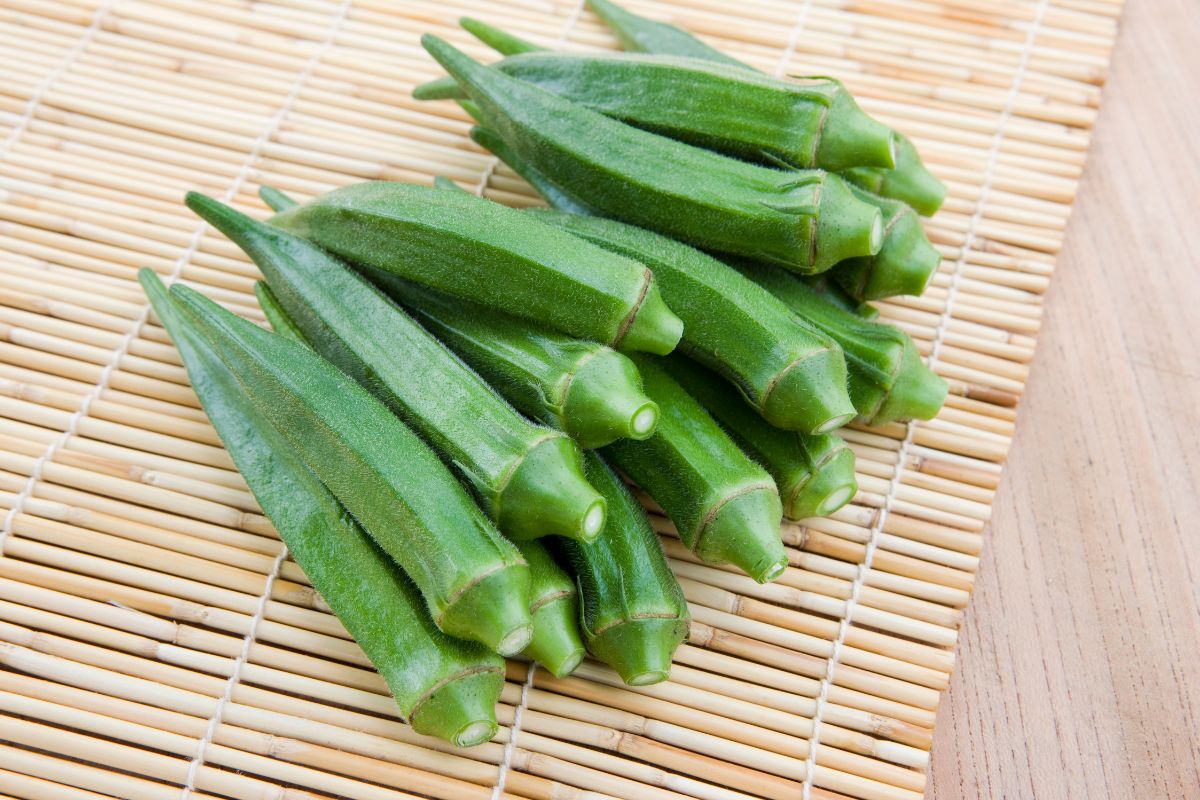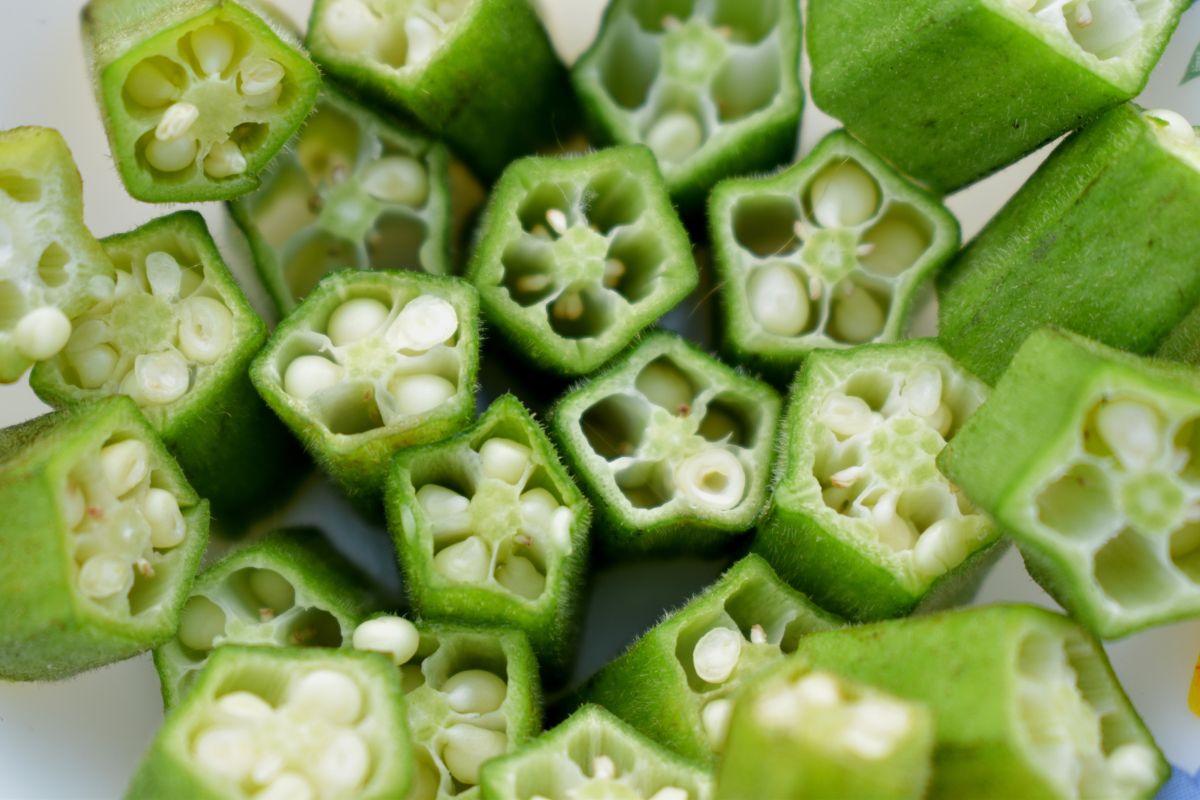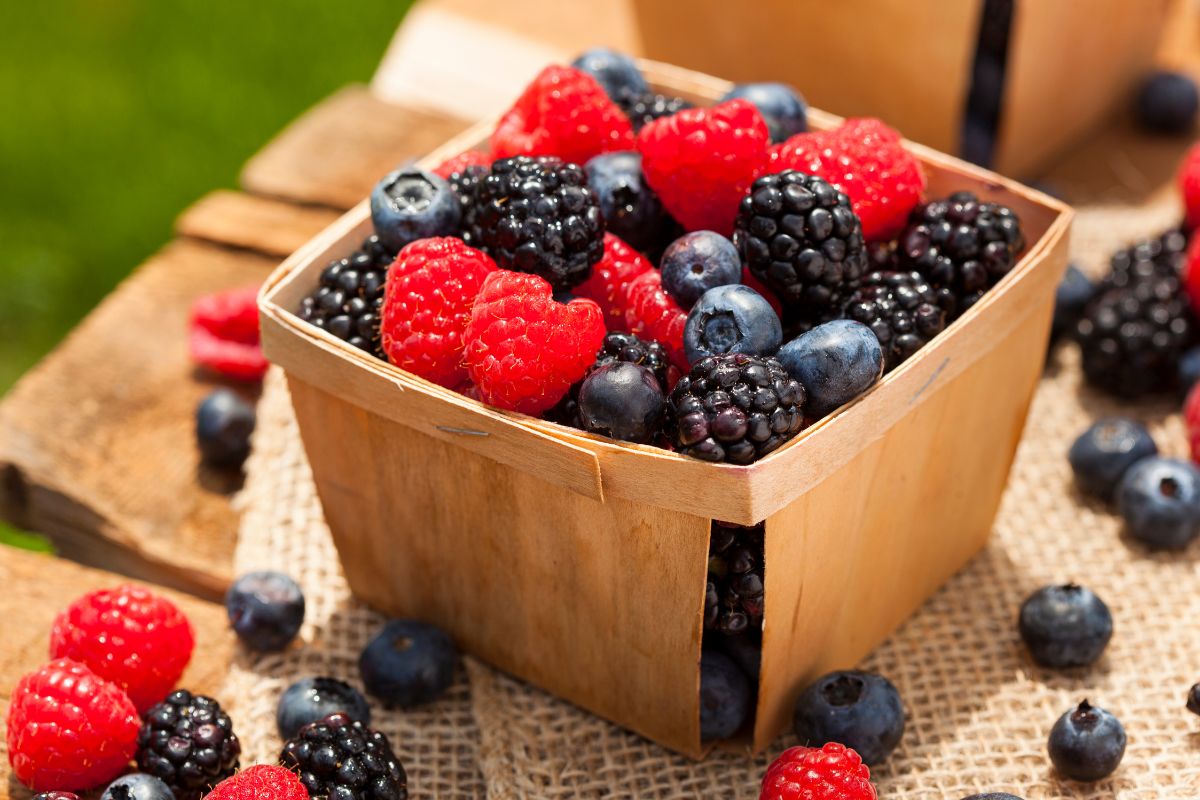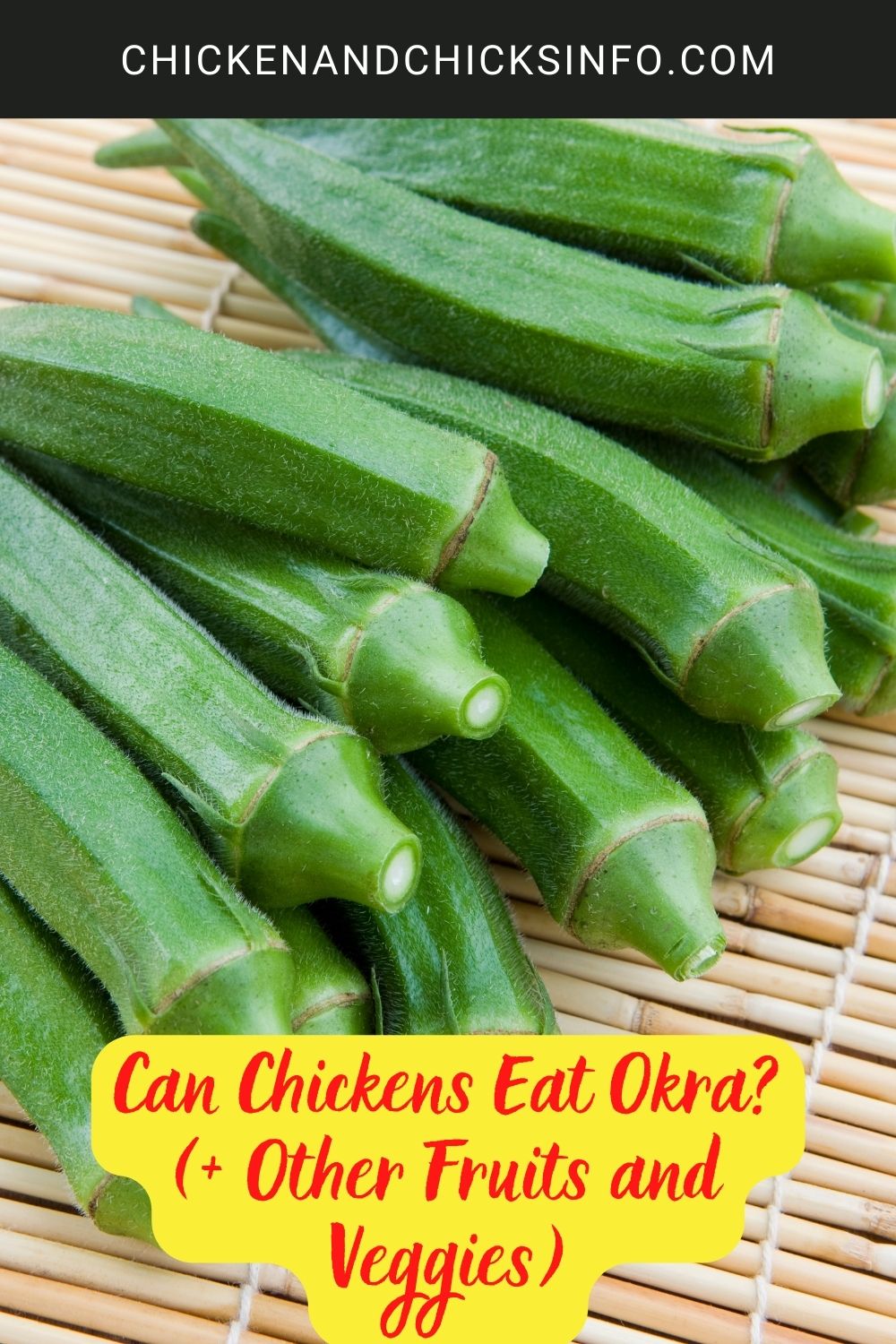Yes, chickens can eat okra in small amounts. Okra is one of the more interesting fruits. It’s eaten like a vegetable, isn’t widely available in most states, and has a uniquely interesting “earthy” taste.

Jump to:
Is Okra Healthy for Chickens?
Often referred to as “lady’s fingers”, okra comes in both red and green colors. It’s much more commonly seen as green in my experience though.
Like most fruits (yes, it’s a fruit - even though it’s treated more like a vegetable) okra is packed with vitamins, minerals, antioxidants, and other key nutrients.
While chickens get all their nutritional needs met by eating formulated commercial feeds, it doesn’t hurt to add some healthy fruits and vegetables to their overall diet.
Something to note is that okra does contain low levels of solanine. Solanine is a compound that’s known to be toxic to chickens, and can also cause us some health issues.
As far as I can tell, the okra fruit has very low levels and a small amount here and there will not cause them a problem.
Trace amounts of solanine are found in a lot of fruits and vegetables. In some vegetables, such as some plants in the nightshade family, it’s present in dangerous amounts.
But in most fruits and vegetables the level of solanine is not high enough to cause any issues.
Can Chickens Eat Okra Pods, Seeds, and Leaves?

The pods are fine. This is the main part of the fruit we eat, and we also eat the seeds. So, I have no issues giving the pods and seeds to chickens.
I wouldn’t feed the stalk, stem, or leaves to my chooks though. I can’t find a lot of scientific evidence on the level of solanine in these parts of the plant. But in the case of most plants that contain this compound, it’s usually more concentrated in the stems and leaves.
So, just to err on the side of caution I wouldn’t feed your chicks anything other than the main fruit.
There isn’t any real reason to give them other parts of the plant anyway.
Some Foods That Are Toxic to Chickens
I mentioned above that solanine is toxic to chickens. There are some other compounds in other foods we eat that are also harmful.
Here are some of the foods we commonly eat that are potentially harmful to chickens to be aware of:
Green tomatoes and potatoes - As I mentioned above, some other fruits and vegetables can contain harmful amounts of solanine.
This applies to potatoes and tomatoes when they’re green. This is the way some plants naturally try to defend themselves against being eaten by pests. Don’t give your chickens green parts of a potato, or green tomatoes and any other part of the plant.
Chocolate - Chocolate also contains a couple of compounds that are toxic to chickens - as well as most other household pets.
Tea and Coffee - If you use used tea bags or coffee grounds as composting heap material in your yard, keep it well away from where your chooks roam.
Raw Beans - Most beans contain a compound called lectin that is harmful, even fatal when eaten by chickens. This toxin is neutralized when they’re properly cooked.
Greasy/Salty Foods - While not toxic as such, you have to respect that chickens require a lot of good quality nutrition to stay healthy and lay tasty eggs. Giving them leftover junk food or foods high in salt and additives etc isn’t good for them.
Related - A few French fries won't hurt! 🙂
Some Foods That Are Fine for Chickens

If you want to try out more foods with your flock to see what they like - you’re in luck. Chickens can eat most things, and in my experience, there is very little they turn their beaks up at!
Here are some of the healthier foods that are fine for chooks:
Grains - Grains make up a big part of commercial feeds and scratch mixes. They also tend to be affordable and easy to feed to them, so I recommend picking up some brown rice, wheat, corn, cornmeal, and giving your chicks something to scratch around for.
Fruits - Okra is one of the rarer fruits I’d say most owners have given their flock. Most give them bananas, figs, apples, oranges, berries, and melons.
Vegetables - Vegetables are also a great way to add some more good nutrition to your chicken’s diet. Broccoli, carrots, cabbage, sprouts, sweet potatoes… all awesome veggies.
In Summary
Feeding fruits, vegetables, and leftovers to your feathered friends in your backyard is fun, isn’t it?
The rule of thumb here is to make sure that they’re getting at least 90% of their diet from a quality commercial feed. This way, you know they’re getting all their dietary requirements met.
In addition to this, you should give them some healthy treats. Okra is fine in small amounts, there are some better fruits, but if you have okras feel free to see if your flock like them.
Resources
7 Nutrition and health benefits of okra - Healthline.com





